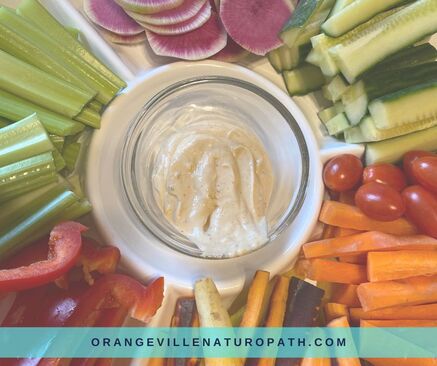The food you eat is a foundation for your health. Choosing nutrient dense, antioxidant rich foods can calm inflammation and support healing. Of course there are times of celebration and indulgence - birthday cake, parties or special holiday meals - but it's the daily average that counts most of all.
You may have noticed significant changes in your health once you have been eating more whole foods and less processed food, only to see a drastic return of symptoms after eating sugar, lots of flour, or inflammatory oils (read more about that here). I call this research and development ;)
Signs that your food choices weren't the best for your body:
- fatigue
- brain fog
- headache
- joint pain
- bloating
- heartburn
- digestive changes
- mood shifts - anger, sadness, irritability
- skin changes
Managing Symptoms the Next Day
Feeling unwell or just a little off the day after eating junkfood or drinking alcohol can be from any number of things: the food or drink itself, staying up late, being out of routine, blood sugar dysregulation, a food sensitivity, liver overwhelm, or dehydration. These suggestions can help assist any number of these underlying causes.
- Water - flush things through by rehydrating, a pinch of sea salt in the water can help to absorb it better or you may even want to consider a natural electrolyte drink like coconut water or bone broth
- Movement - get the lymph flowing and digestion going, even just walking after a meal can improve digestion and blood sugar balance a lot
- Fasting - either intermittent fast with at least 12 hours without food, or even a full day can help to reset, but it's not for everyone so do your research and seek support if you want to go that route
- Protein - keep blood sugar and energy more stable by eating protein (eggs, meat, poultry, fish, chickpeas, beans, etc) with each meal and snack
- Fibre - vegetables are a great option to keep digestion moving, plus they are low sugar and nutrient dense, cooked veggies or soups are even easier to digest
- Support your Liver & Gallbladder - the liver for alcohol, sugar and fat consumption, and gallbladder for fat digestion especially -> use milk thistle, dandelion, NAC, B vitamins, and foods like: beets, leafy greens, artichoke, and lemons; plus my favourite castor oil packs ;)
- Heartburn & Bloating - in addition to the above strategies, a shot of apple cider vinegar or taking a digestive enzyme with meals or DGL for heartburn can be helpful to move past digestive discomfort. If you've eaten a food that you have a sensitivity to then glutamine can help your intestinal cells to heal more efficiently too.
- Sleep - focus on going to bed on time or a little bit earlier tonight, to prevent fatigue and help recover, but also adequate sleep helps to keep blood sugar balanced and cortisol (that stress hormone) lower
For me, gluten free eating is a non-negotiable because of the level of symptoms I experience from consuming it. The benefit from that is that processed meals and fast food are basically off the table. As a result, my husband made fries, wings, and onion rings in our own deep fryer last night (in addition to the gorgeous veggie tray pictured above). I couldn't tell you the last time I've had an onion ring, it's been several years. We used avocado oil because of the higher smoke point, and both cassava and Bob's Red Mill 1:1 flour for the breading. It was delicious, but I don't feel the need to have it again... until maybe next year ;)
The point is, we can have celebrations and still honour our own health needs.
For additional thoughts on the day after the Super Bowl from a previous year, have a look here. If you'd like further support on identifying food sensitivities or decoding other observations you've made with your symptoms, I'd be glad to help.
Have a great week,
Dr Christa

 RSS Feed
RSS Feed